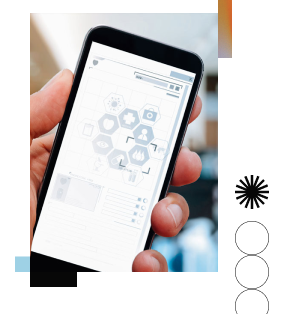Challenge
Outcome
A leading provider of fleet management software designed for bulk material supply companies needed to completely rewrite its main Industrial Internet of Things (IIoT) applications. These IIoT offerings were a combination of Windows Desktop applications, web-delivered components and an Android application which pulled telemetry data from trucks in the field. It had reached a point where scalability was compromised, which in turn greatly hindered developer productivity and application efficacy.
Examining current systems to recommend future progress
To meet the client’s business goals, Catalyte proposed rearchitecting and digitally transforming the existing IIoT system into a web-delivered, cloud-deployed mobile application. A full rewrite would allow the applications to scale and increase usability, stability, adoption and performance.
A total rewrite of the system would take two years or more. To create a path for success, Catalyte embarked on a 10-week preliminary discovery phase. During this phase, Catalyte worked closely with the client to holistically investigate all aspects of its development organization. This included:
- Business processes and customer workflows
- Requirements gathering and writing
- Software development methodologies and processes
- User experience (UX) methodologies and processes
- QA testing
- Project management
- Architecture
Roadmap for application modernization
Catalyte identified areas of improvement that would modernize every aspect of the software delivery lifecycle and product management. Among these improvements were:
- UX workflows, from initial user interviews to wireframes and prototypes
- More precise requirements writing to provide developers with specific and actionable user stories
- Separation of development and QA manager to allow greater focus on both aspects of the application/project
- Full DevOps AWS cloud native environment
- Automated QA testing
- Agile development practices
- UX design and development deliverables
- Modern operations best practices
Beyond discover to integration and implementation
Beyond the modernization of processes and the creation of a comprehensive project development roadmap, Catalyte delivered fully automated CI/CD during this phase. The discovery effort also aligned expectations, defined mutually agreed upon work processes and helped form a better, more trusted integration between the client and Catalyte engineers.
By taking the time upfront to consult with the client and implement best practices that fit within its culture or modernized its development capabilities, Catalyte solidified client trust and demonstrated it was a partner for long-term success.
Key takeaways
Agile coaching and transformation
Modernization of QA practices
UX
Keeping all stakeholders happy
Key technologies/skills
- Agile training
- QA automation
- UX integration into agile process
- DevOps
- Enterprise architecture
Share on social
Related success stories
- Industrial


